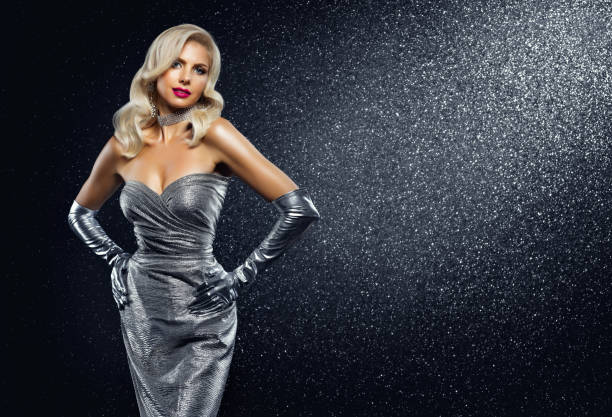Introduction: The rise of artificial intelligence has transformed countless industries, but one of its most controversial applications is the creation of AI celeb nudes. These digital creations have sparked heated discussions and debates across social media platforms and beyond. From strikingly realistic images to jaw-dropping manipulations, this technology blurs the lines between reality and fantasy. While some view it as an innovative form of art or entertainment, others raise significant ethical concerns about consent, privacy, and the potential harm it can cause to celebrities’ reputations. As we dive deeper into this intriguing subject, it’s essential to explore both the fascinating technology behind AI celeb nudes and the complex moral landscape that accompanies their existence.
The Technology Behind AI Celeb Nudes
The technology behind AI celeb nudes is both fascinating and complex. At its core, it relies on advanced algorithms and machine learning techniques. These systems analyze thousands of images to create hyper-realistic renditions.
Generative Adversarial Networks (GANs) are often use in this process. GANs consist of two neural networks that work against each other, improving the quality of generated images over time. One network generates new content while the other evaluates its authenticity. You may like to read about DA AI: Revolutionizing New Artificial Intelligence Solutions.
Deepfake technology also plays a crucial role. By mapping facial features onto different bodies, it can produce strikingly lifelike results. This innovation raises important questions about consent and digital ethics.
With such advancements available at anyone’s fingertips, creators must navigate a delicate landscape where artistry meets morality. The tools may be powerful, but their implications can be deeply troubling for those involved.
Ethical Concerns and Privacy Issues
The emergence of AI celeb nudes has sparked intense ethical debates. The technology allows for the creation of manipulated images that often blur the lines between reality and fiction.
Celebrities, like all individuals, have a right to privacy. When AI-generated content invades this space, it raises questions about consent. Are these digital representations truly representative if they’re not sanction by the person depict?
Moreover, the potential for misuse is significant. Such images can lead to harassment or cyberbullying against those involved. The emotional toll on celebrities cannot be overlook.
In a world where social media spreads information rapidly, distinguishing real from fake becomes challenging. This confusion can perpetuate harmful narratives and damage reputations without accountability.
As technology evolves, so does our responsibility to navigate its ethical landscape carefully. Society must grapple with these concerns before celebrating such advancements in artificial intelligence.
Impact on Celebrities and Society
The rise of AI celeb nudes has left a noticeable mark on the lives of celebrities. Public figures face an ongoing battle with their image, often struggling to reclaim control over how they are portrayed.
Fans and critics alike have mixed reactions. While some view it as harmless entertainment, others see it as an invasion of privacy. The technology can distort perceptions, creating unrealistic standards around beauty and desirability.
Society grapples with these consequences too. It raises questions about consent in the digital age. As individuals become desensitized to such content, discussions around ethics grow increasingly important.
Moreover, this phenomenon influences young audiences who may not fully grasp its implications. They might inadvertently normalize objectification or harassment under the guise of artistic expression or humor.
This complex interplay between technology and human behavior invites deeper scrutiny into our cultural values and moral compass regarding digital representations.

Legal Implications and Potential Solutions
The rise of AI celeb nudes has sparked a complex legal landscape. Current laws struggle to keep pace with rapid technological advancements. Copyright issues, consent violations, and defamation claims pose significant challenges.
Celebrities often find their likeness exploited without permission. Existing frameworks may not adequately protect individuals from unauthorized use of their images. This gap raises questions about accountability in the digital age.
Potential solutions include updating copyright laws to address AI-created content specifically. Implementing stricter regulations on deepfake technology could also deter misuse.
Educating users about ethical considerations in tech is crucial too. Awareness can foster respect for privacy and personal boundaries.
Collaborative efforts between lawmakers, tech developers, and advocacy groups are essential to navigate these murky waters effectively. A comprehensive approach ensures that rights are safeguarded while still embracing innovation in the entertainment industry.
Public Perception and Future of AI Celeb Nudes
Public perception of AI celeb nudes is a complex tapestry woven from fascination and outrage. For some, the technology represents an exciting frontier in digital art and expression. Others view it as a troubling invasion of privacy that crosses ethical boundaries.
The rapid evolution of AI tools has sparked conversations about consent and agency. Many people are grappling with what it means to create or consume content derived from someone’s likeness without their permission.
As awareness grows, so does scrutiny. Social media platforms face pressure to regulate such content more strictly while advocates call for clearer guidelines around its creation and distribution.
Looking ahead, this debate will likely intensify. The future may demand innovative solutions that balance artistic freedom with respect for individual rights in an increasingly digital world.
Conclusion
The rise of AI celeb nudes has sparked a complex conversation. Technology is evolving rapidly, pushing boundaries in both art and ethics.
Celebrities find themselves grappling with issues of consent and privacy. The implications reach far beyond individual cases, affecting societal norms around digital representation.
Public perception continues to shift as awareness grows. Some see it as harmless fun; others view it as a serious violation.
This ongoing debate raises critical questions about the future landscape of celebrity culture and personal rights in the age of artificial intelligence. Educating ourselves on these matters will be essential moving forward.
As technology advances, so must our understanding and frameworks for ethics surrounding its use. Balancing innovation with respect for individuals is crucial in navigating this new digital frontier.
FAQ’s Details
The rise of AI celeb nudes has sparked intense discussions across various sectors. As technology evolves, it creates opportunities while also posing significant ethical, legal, and social questions.
What are AI celeb nudes?
These are images generated by artificial intelligence that superimpose the faces of celebrities onto explicit bodies or scenarios. The allure behind these creations lies in their hyper-realistic quality and the seamless integration made possible through advanced algorithms.
The core technology driving this phenomenon involves deep learning techniques like Generative Adversarial Networks (GANs). GANs can create highly realistic visuals by training on vast datasets containing numerous images. This capability raises concerns about authenticity and consent since the individuals depicted often have no control over how their likeness is used.
Ethical dilemmas abound when discussing AI celeb nudes. Privacy issues come to the forefront as unauthorized use of someone’s image could violate personal rights. Celebrities, despite their public persona, deserve respect for their autonomy—something that’s frequently overlooked in today’s digital landscape.
For society at large, these technologies reflect deeper cultural attitudes towards fame and sexuality. While some view them as harmless fun or artistic expression, others see a growing trend toward objectifying individuals based on looks alone.
Legal implications remain murky as legislation struggles to keep pace with technological advancements. Current laws may not adequately address this new frontier of digital manipulation and privacy invasion. Potential solutions include developing stricter regulations around image usage and creating awareness campaigns surrounding consent in digital media.
Public perception varies widely; many people find fascination in AI-generated content while others express outrage regarding ethical violations involved in its creation. The future remains uncertain but will surely continue engaging conversations about morality versus innovation within our increasingly tech-driven world.
Questions About Ai Celeb Nudes
What exactly are “AI celebs nudes”?
AI celebs nudes refer to digitally altered images where celebrities’ faces are placed onto nude bodies using artificial intelligence technologies such as GANs (Generative Adversarial Networks).
How are AI celeb nudes created?
AI celeb nudes are typically created using deep learning techniques, such as deepfakes, where AI models analyze and recreate images based on existing photos or videos.
Are AI celeb nudes legal?
The legality of AI celeb nudes varies by country. Many jurisdictions consider the creation and distribution of non-consensual AI-generated explicit content a violation of privacy laws.
Why are AI celeb nudes controversial?
AI celeb nudes are controversial due to ethical concerns surrounding privacy, consent, and the potential misuse of AI technology to harm or exploit individuals.
Can AI celeb nudes be stopped?
While it is difficult to completely prevent the creation of AI celeb nudes, various platforms are working on detection tools to identify and remove such content.
What is the impact of AI celeb nudes on celebrities?
AI celeb nudes can damage a celebrity’s reputation, invade their privacy, and cause emotional distress due to the unauthorized use of their likeness.
How can we protect against AI-generated explicit content?
Protection involves stricter laws, the development of better AI detection tools, and public awareness about the misuse of AI to prevent the spread of non-consensual explicit content.

